Why you should make your team play a role-playing game
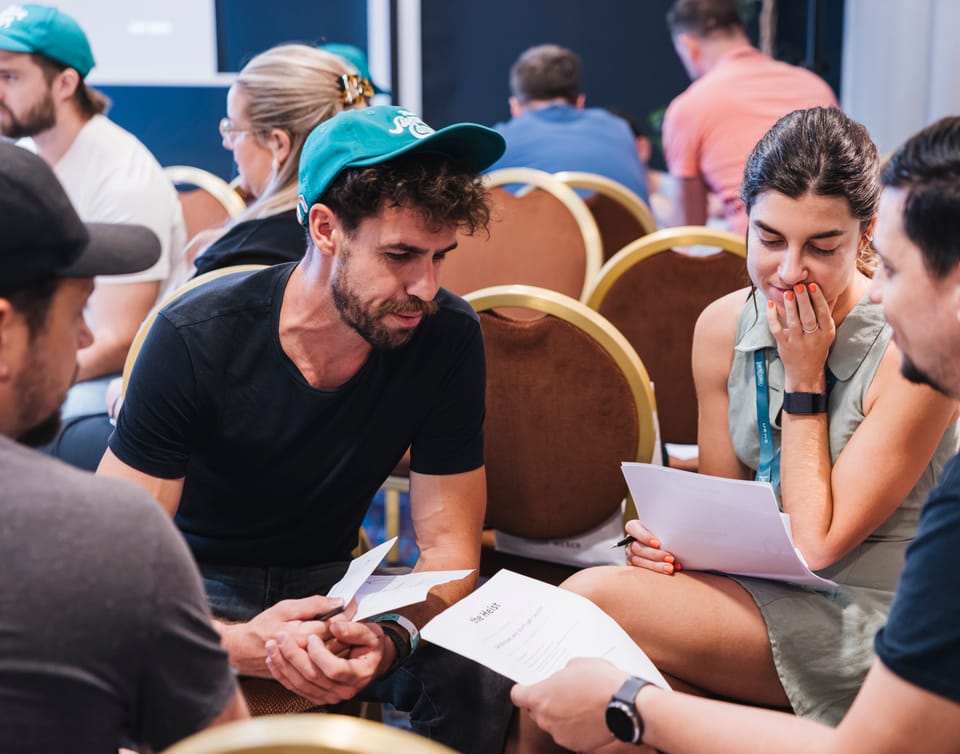
This might shock you, but I'm a nerd and I love role-playing games. And recently I made a 100 people from my company play one.
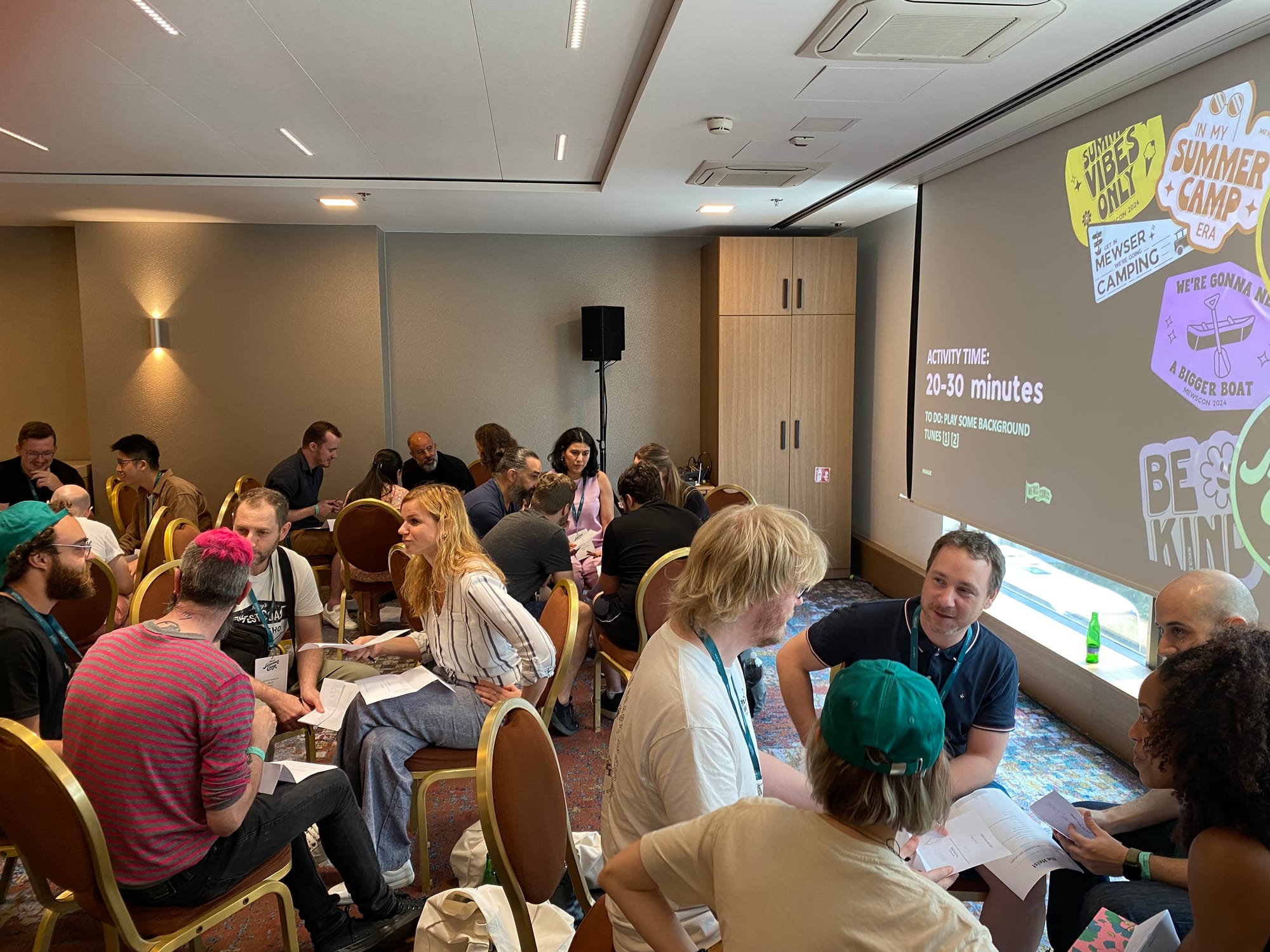
But first:
What makes teams work?
Games offer a safe space to play out conflict, something that happens in the “storming” phase of building teams. This is a phase that all teams go through after the initial, "forming" phase in a new team, when they are first introduced and are trying to get to know each other.
Pretty soon personalities will start to emerge, that were previously suppressed. People will start to argue, with each other and with leadership, until they sort out their place in the group and are feeling comfortable in their new roles. The "storming" phase can be a challenge to navigate and can be draining.
After the "storming" comes settling down or "norming", as people find their roles in the team and start getting on with their work. They're still trying to find good ways to work with each other but they're reaching alignment on their goals.
Eventually, if the people in the team built relationships and find ways to work with one another , they're said to be "performing".
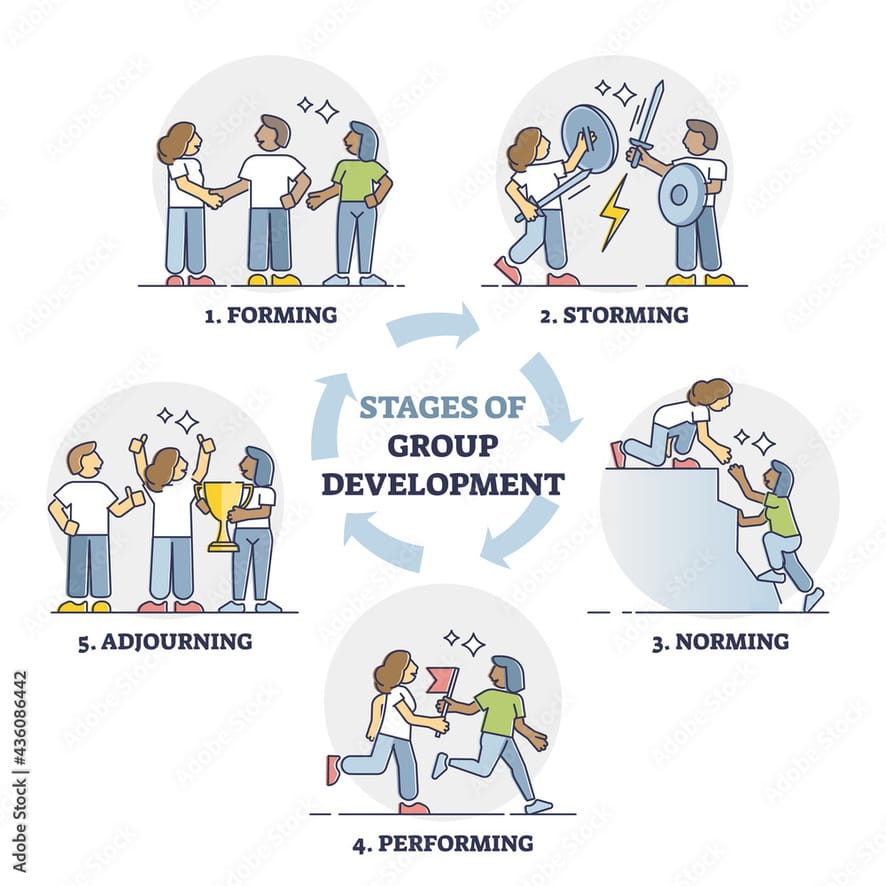
What I've just described are the first four stages in the Tuckman model of stages of group development, also known by (some of) its phases: “formin’-storming’-normin’-performin’”.
It’s a good model to look at in the context of modern teams, who frequently have to go through this cycle again and again, as roles and teams change over time, and members drop in and out. So it would be helpful to find a way to make the journey to a well-performing team smoother and potentially faster, and roleplaying games can help with that.
On games and building better teams
You might have encountered various kinds of games in a corporate setting, whether they were warmup exercises before a big team workshop, straightforward teambuilding activities like an escape room, or some kind of SCRUM game where your Agile coach helped facilitate a feedback session or simulate talking to mercurial stakeholders. These all share a common thread of people (or players) taking on roles (sometimes characters) to align on a common goal in a playful and light-hearted way.
Role-playing games create a safe space for people in a team to explore different roles, enabling them to perform better together.
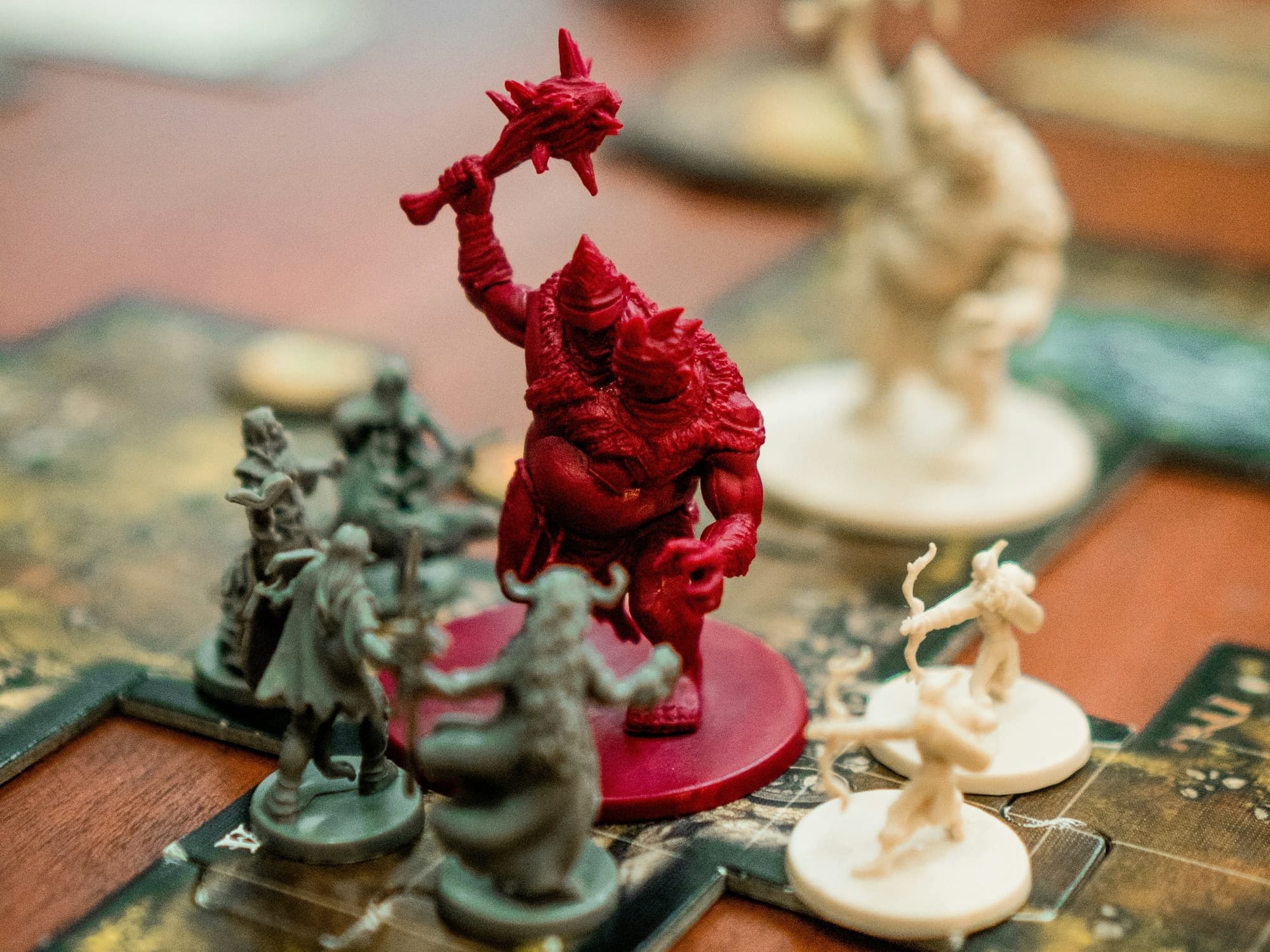
In cooperative role-playing games, the players work together to achieve a common goal. Maybe it's slaying a monster that's been terrorising their village, or building a successful Mars colony. They are given roles in scenario and they have to act out scenes, as if in a movie or play.
While being in-character, the players have to communicate what they want to do, cooperate with others since they can’t do everything by themselves, and compromise since not everyone has exactly the same objectives. (There might even be some backstabbing!)
Even if the characters don’t succeed in their goals, it can be entertaining, cathartic and even educational, as the players act out the consequences and how they each react to their new predicaments. In either case, the players get share this unique story that they created together.
When a player takes on a role, they essentially don a "mask" that gives them freedom to explore it, as everyone else is playing along. The team tries out which combinations of their personalities work best in which situations. And when conflict does arise, it is a playful one where people are free to be witty or cunning, and feelings shouldn't really be hurt as it's just your characters jostling and not you!
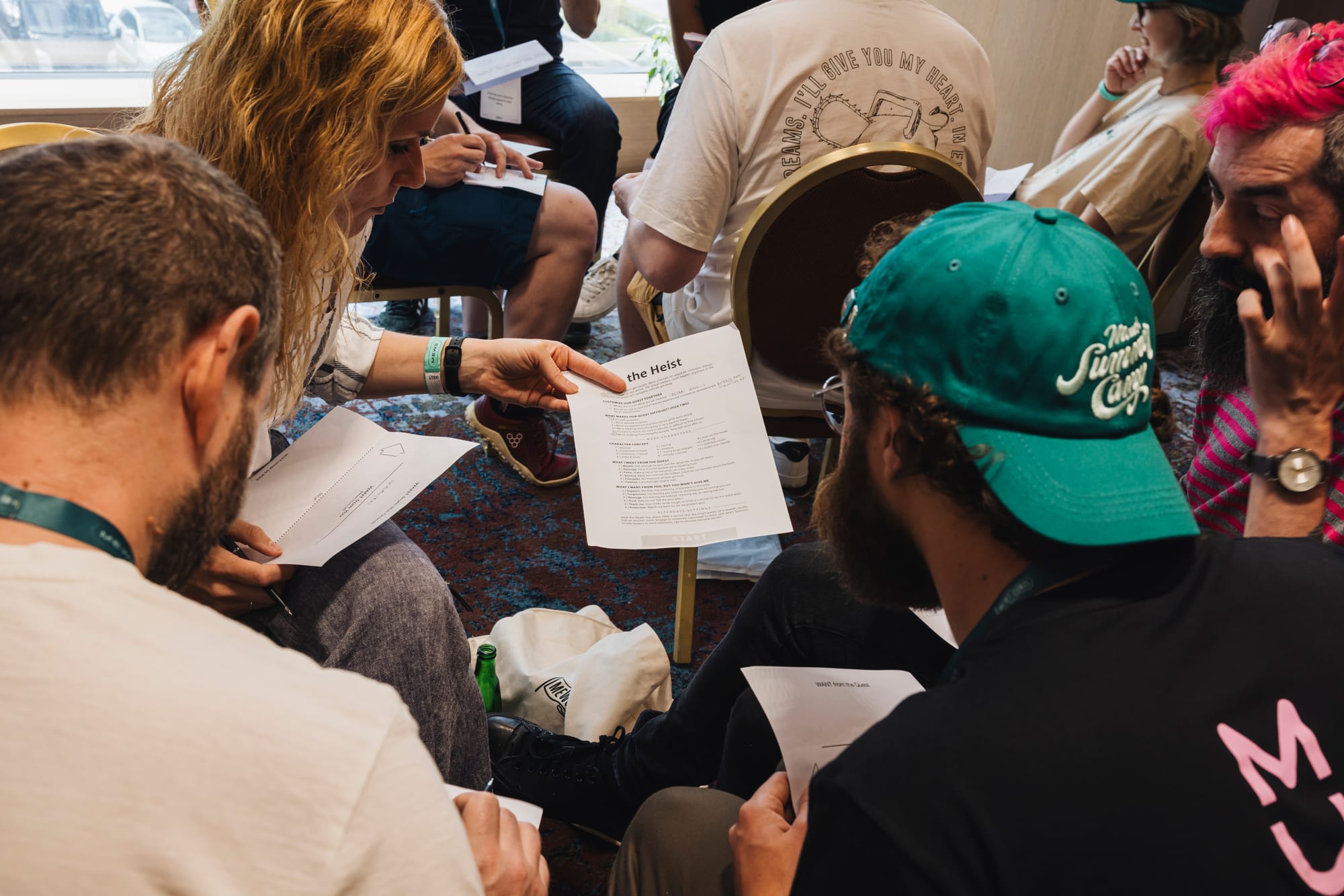
The biggest benefit in the context of team-building is that you build trust with each other. As is often repeated in management courses, trust is the foundation of everything else - resolving conflict effectively, committing to act together and hold each other accountable, all to achive great results. See: the oft-cited book with its famous pyramid - “The Five Dysfunctions of a Team” for another good story.
Though roleplaying games the team members are allowed to be a little bit vulnerable in a not-so-serious activity. As they've explored how their personalities mesh in different situations, they've had to cooperate and compromise with each other, which hopefully built trust for future work together.
"Follow", the RPG
So, a few weeks ago, my company (Mews) held a big annual gathering in Prague called "MewsCon 2024", where hundreds of us from all over the globe gathered for three action-packed days of workshops and team-building activities.
I organised a 50 minute workshop titled Building Better Teams Through Tabletop Roleplaying Games. BBTTTRPG for short.
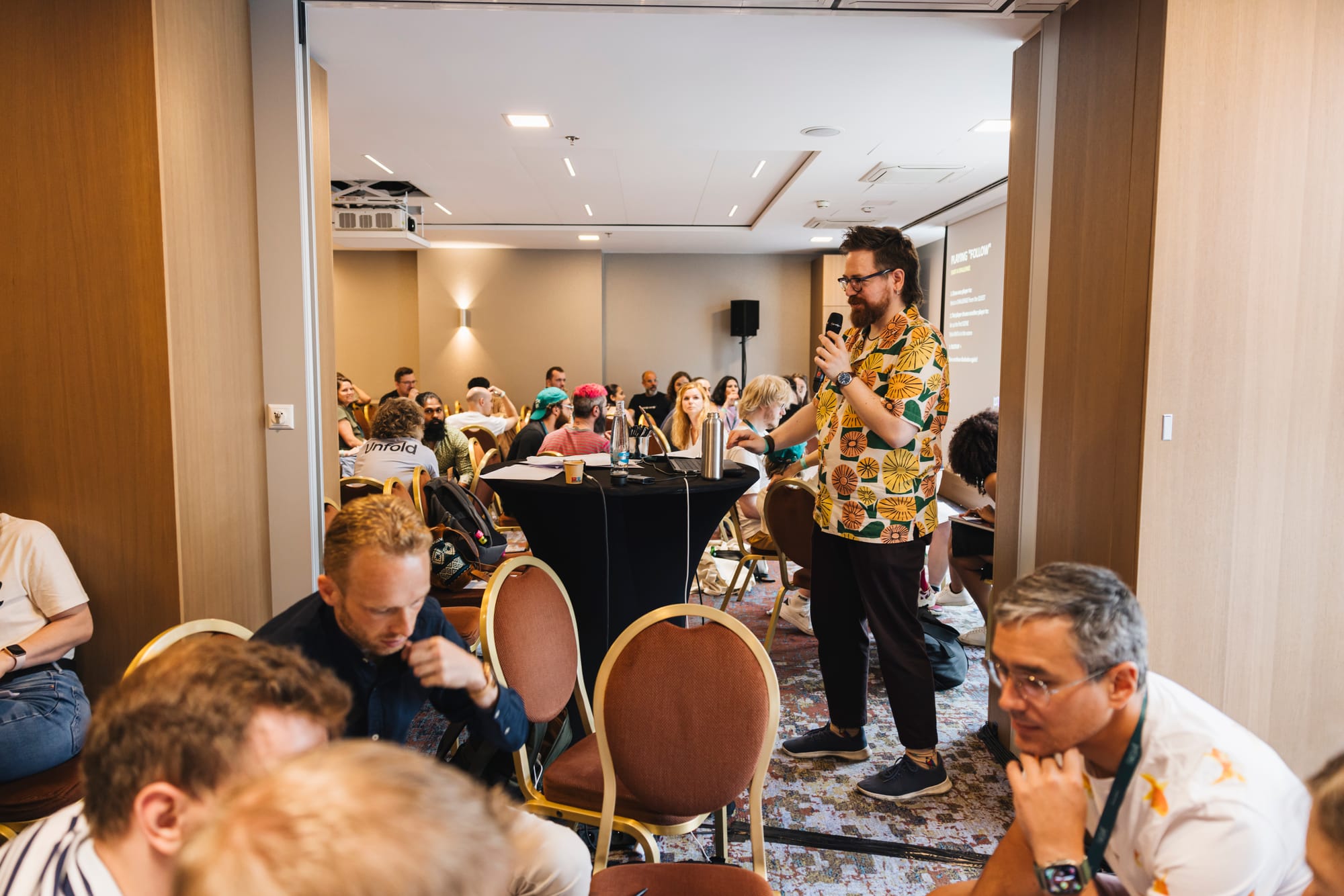
When I saw that I had 100+ signups I absolutely did not panic but I did think really hard about which TTRPG would be best to run in such an environment. It needed to showcase how teambuilding can be done through role-playing games, while not having to fiddle with special dice, complicated rules or having someone act as a Game Master (essentially a judge, arbitrator and narrator, all rolled into one) for a group or a whole room full of people.
Enter "Follow" – this is a game by Ben Robbins, the game designer behind many innovative RPGs, such as "Microscope" (where players build up an epic history of their own creation, in a non-chronological order), none of them requiring a dedicated Game Master, special dice, or big preparation to play. Its tagline seems perfect for this teambuilding event:
“a game about working together or falling apart”
By the way, he’s recently released a free version of “Follow”, so get a little taste of it here.
The full game comes with 18 different scenarios or "quests" to chose from, each with its own sheet that guides a group of players along. They customise the story through prompts: What is the group trying to achieve? What does their character hope to get out this and why is another character not helping them?
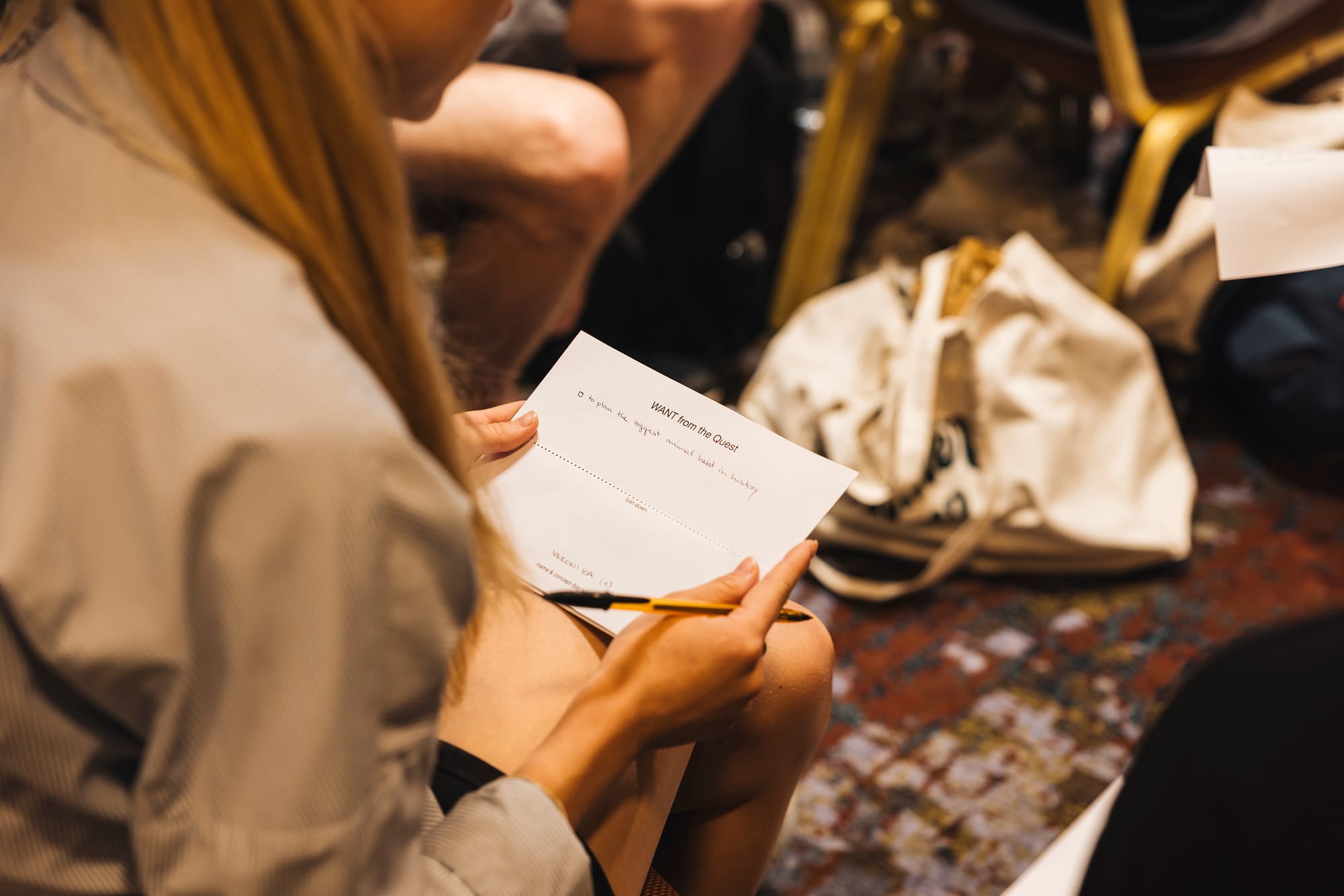
Each round they pick a challenge from a list for the given quest and set the scene together before plunging into scenes with improvised acting! There are quick tips on how to stay in the scene and not have the "play" part devolve into pure strategising, without the players actually playing out their roles.
The rules of the game are pretty simple and laid out in a step-by-step fashion. Along with all the prompts to chose from, it all greatly helped the players feel comfortable, since there was a big spectrum of the knowledge about role-playing games in the room, with most people only having heard of the words "D&D" or "Stranger Things".
To streamline things, I preselected the quest for the workshop (picked "The Heist"), omitted the appearances of "minor characters" so that each player only had their main character to think about, and we didn't play the final secret voting part of the game, due to time.
I also made sure to have a handful of people whom I'd introduced to the rules beforehand, dispersed among the crowd, so that we could clarify the rules together.
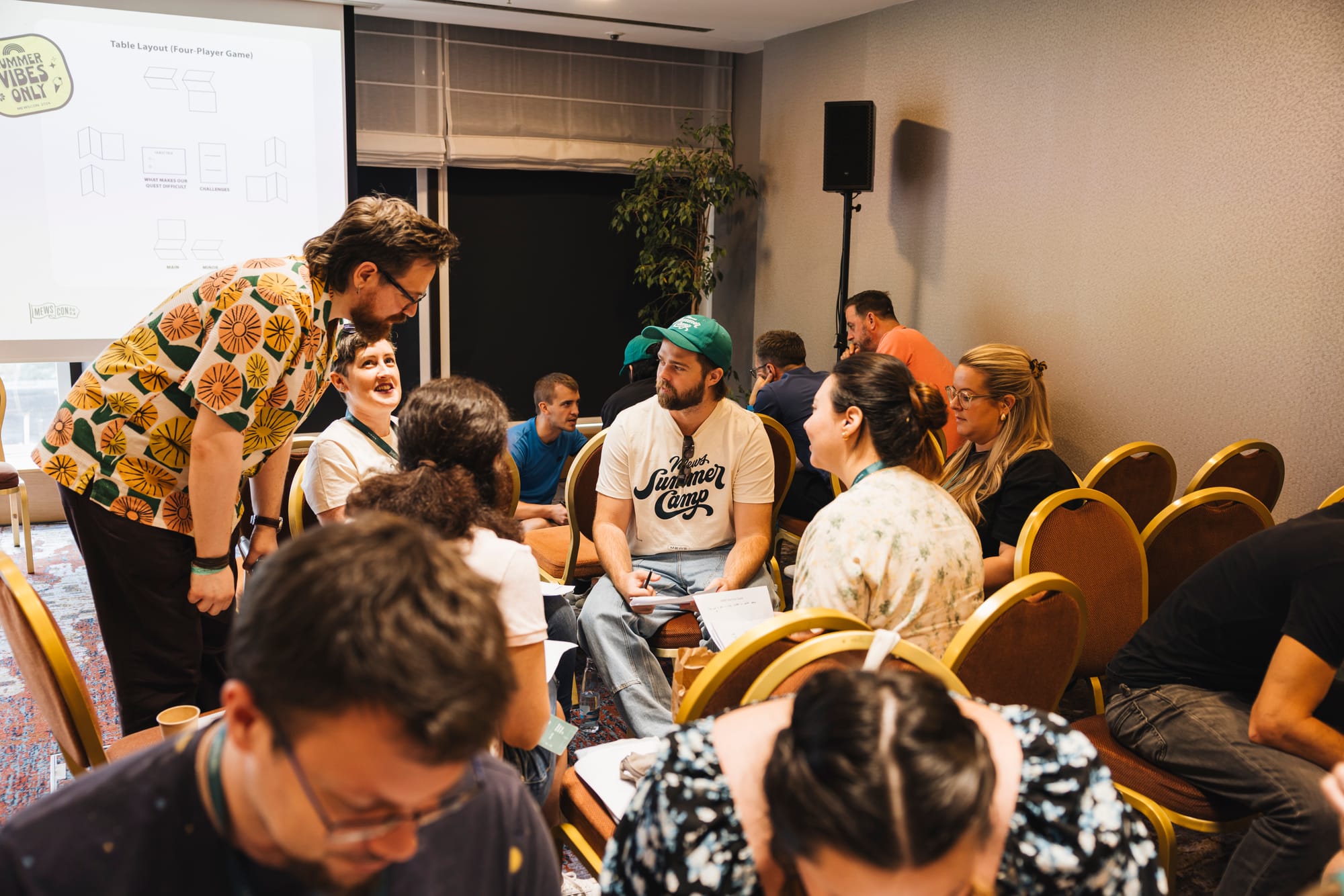
Sadly, we ran out of time (with a big "AAWWWW" from the crowd) and didn't get to the juicy part of the game where each player secretly votes about how their character felt about what transpired and then were are consequences based on that...
After the games
The buzz in the room was palpable, as people who'd never played roleplaying games before took the time to be creative and a little silly (very seriously), while deepening their connections with one another. As I walked over to each group, I was amazed how readily people jumped into their characters and developed original stories that they shared with each other, sometimes with near-complete strangers!
I've had a colleague walk up to me, their eyes full of excitement, saying how this experience was unbelievably fun for them and they'd never even heard of such games before!
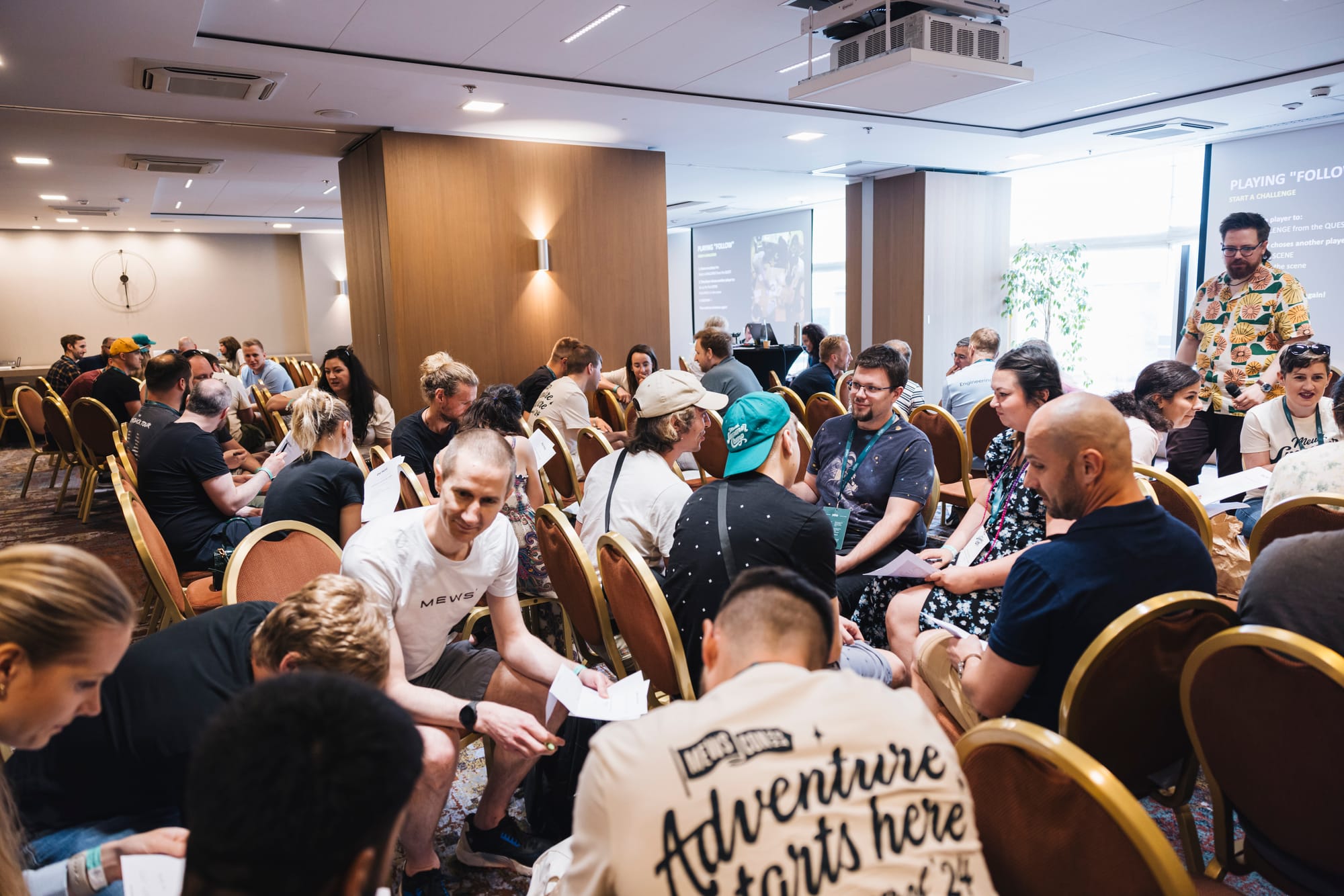
Of course, what could've been better was to alocate more time for the activity. 50 minutes was really stretching it to talk about building teams, explain the rules AND playing the game. But this was simply an irresistible challenge for me to try and organise!
The huge crowded room was also a little too noisy to really get deep into the characters for some groups. It's good to be mindful of individual's different needs and help them have the best experience.
I could see this kind of activity be even more impactful with a group of people that will work closely together, as they'd get to form bonds that will enable them to grow together and accelerate their journey on becoming a well-performing team.
After reading this, I hope you feel compelled to dig deeper and play some roleplaying games with your team. Yes, you can always do paintball or escape rooms, but you will never forget when you overcame cringe and roleplayed stealing chickens from a coop, played as superheroes or slayed the dragon together, all fully in character!